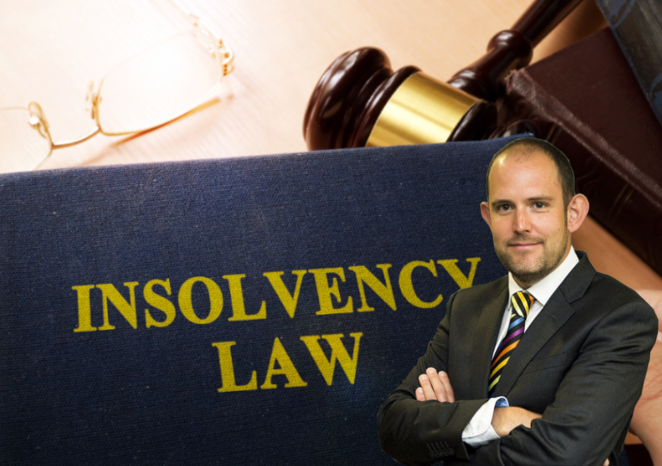Luke Harrison, a partner at Debenhams Ottaway LLP, handled the case of Smith & Wessely (Joint Liquidators) v Travers & Others. We talk to Luke to learn more about the case and his practice.
Luke Harrison is the lead partner in the litigation and dispute resolution team at Debenhams Ottaway LLP. He is also the Chairman of the Commercial Litigation Association. His practice comprises a broad spectrum of commercial disputes with particular expertise in contentious insolvency, banking and financial services, boardroom disputes, professional negligence claims and dispute concerning technology and software. Luke’s experience in alternative dispute resolution includes mediation, arbitration and expert determination, which he has lectured at Hertfordshire University.
In the English case of Smith & Wessely (Joint Liquidators) v Travers & Others, the High Court handed down judgement ordering a misfeasant director to pay £787,830.59 plus interest and costs to Iconic Hotels Limited. Luke Harrison acted for the successful Liquidators, who were awarded 100% of the quantum claimed against the director plus costs on an indemnity basis as the director failed to accept or beat the Liquidators’ Part 36 offer. The High Court’s decision is a resounding win for the Joint Liquidators.
The case required considerable forensic investigation undertaken by both the Joint Liquidators and Debenhams Ottaway in achieving this successful result. The investigated time span covered about 18 months of data collection. Luke adds, ‘the Insolvency Act 1986 provides a wide range of powers to request and collect information from third parties.’ ‘Fortunately, in this case, all third parties cooperated by providing information, including documents and financial records.’
In the course of the case, the credibility of Clive Oliver Travers, the sole director of Iconic Hotels Limited and a director and majority shareholder of E. Greenham Limited, was questioned. The Deputy Judge did not find him a witness ‘upon which [he] could have confidence in accepting what he told [him] was true’. (…) The Deputy Judge took the view that, unless Mr Travers said anything that was supported unequivocally by documents, the Court would treat his evidence with considerable caution.
Of particular importance was the alleged pre-existing of an equitable charge before the legal charge with E. Greenham Limited (a building company that offered bridging finance) was granted. This equitable charge was allegedly agreed a year before the legal charge but was not registered within the 21-day period prescribed under Section 889 Companies Act 2006. ‘We expected the case to be settled before trial’, Luke says. ‘The main legal issue was whether the subsequent registration of a legal charge can amount to a preference and/or be a breach of duty.’
The director's statutory duties, which were codified in the Companies Act 2006, play an important role. According to the Companies Act 2006, Mr Travers owed duties to the company to act in its best interests. The company’s best interests, however, conflicted with the Greenham Charge. The evidence showed that he put the charges on the property to protect his own interests instead of thinking of the interests of the creditors of the insolvent company.
Steve Smith, Corporate Advisory Partner at Mercer and Hole and Joint Liquidator of Iconic Hotels Limited, commented, ‘it was clear to me from the outset of the liquidation that Mr Travers had little regard to his responsibility to safeguard the interests of the company’s creditors as a whole.’
Luke points out, when a company is solvent, directors can largely do whatever they like as long as it is in the interest of the shareholders. Accordingly, when the director and the shareholder is the same person, he or she can generally act freely. But when a company becomes insolvent, and creditors are involved, it is the shareholders that have to take into account the interest of the creditors.’
To sum up, ‘if a director acts in a way which breaches his or her duties it can result in personal liability. Here the director’s veiled attempts to justify his actions by reliance on an earlier equitable charge failed because the Companies Act 2006 and Insolvency Act 1986 have built-in statutory safeguards to protect the interests of unsecured creditors.’
Links:
Debenhams Ottaway LLP: www.debenhamsottaway.co.uk
Luke Harrison: www.debenhamsottaway.co.uk/people/luke-harrison/
Twitter: twitter.com/luketharrison
Linkedin: www.linkedin.com/in/luke-tucker-harrison-6a07a65/
Read more about the case: www.debenhamsottaway.co.uk/news/2018/06/liquidators-triumph-in-preference-and-misfeasance-claim-against-evasive-director/
See a copy of the Judgement: www.debenhamsottaway.co.uk/wp-content/uploads/2018/06/Final-Judgment-Smith-and-Wessley-and-Travers-and-Others.pdf
About Luke Harrison:
Luke Harrison is the lead partner in the litigation and dispute resolution team at Debenhams Ottaway LLP. He is also the Chairman of the Commercial Litigation Association. Luke has been shortlisted for the St Albans Chamber of Commerce Business Leader of the Year 2017 and a winner of the M&A Adviser, Emerging Leader Awards 2017. He volunteered as a mentor in the Dragons Apprentice Challenge, a charity business challenge where students come up with businesses, between 2010 and 2013. Luke is fluent in French and German. He has links with lawyers and other professionals in Mauritius, regularly visits the island and has spoken at events concerning the Mauritius International Arbitration Centre.


